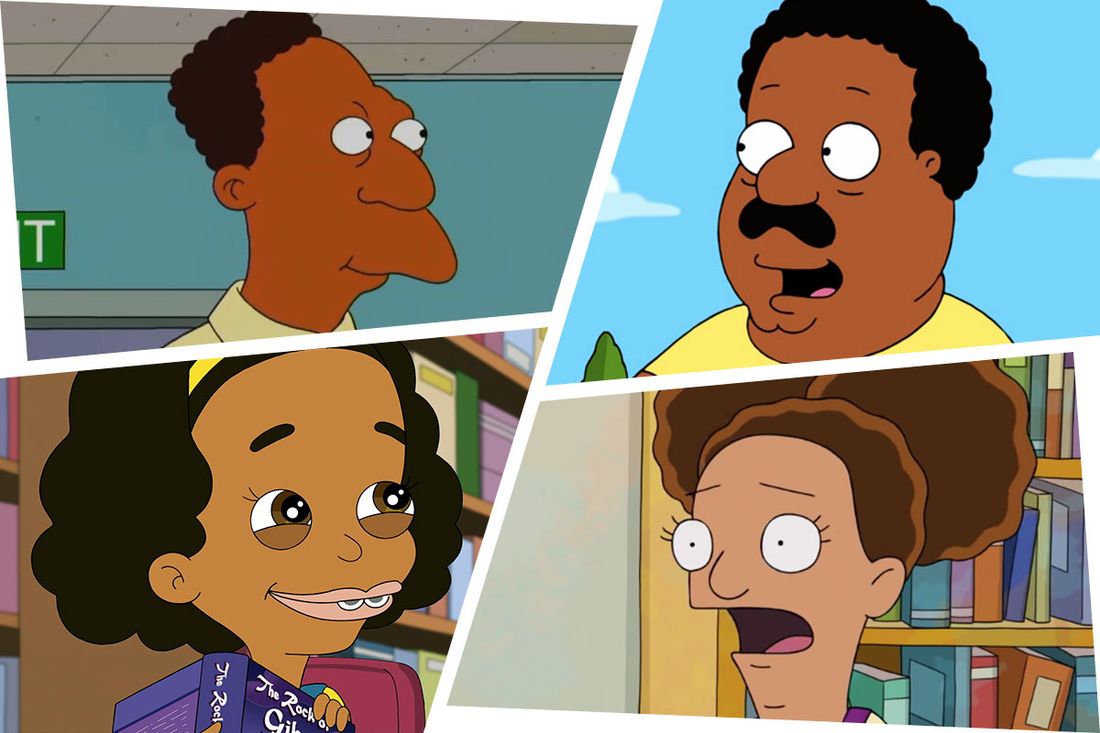As white actors step back from voicing nonwhite characters, where does that leave their international counterparts?
Save this article to read it later.
Find this story in your accountsSaved for Latersection.

Yasmine Modestine has kept the recordings of the threats on her computer for more than a decade.
The threats are incredible, says the actor and musician.
But they are only one expression of her ostracism from the voice acting profession in France.
Of course they cant cover all Black actor roles.
The subject is equally new to Gerard Surugue, the French voice of Cleveland inFamily Guy.
Before we spoke, Surugue who is also white was unaware of Henrys resignation.
Surugue understands Henrys decision: All credit to him.
But I dont pay attention to the characters color I adapt to the original voice.
The color-blindness espoused by Musaus and Surugue is a matter of national policy in their countries.
between 1.5 and 8.8 percent of the total population).
In Germany, the equivalent estimate is around 1 million (1.2 percent of the population).
But estimates are all they are: neither country collects official statistics on race and ethnicity.
But it can end up obscuring inequality by frustrating efforts to quantify it.
Of Les Voixs 229 listed members, the number of Black voice artists can be counted on one hand.
Thats a crude measure of diversity in the profession.
Theres a lot of French people who think this is an American problem, says Lovelace.
The French are very proud of their republican revolutionary tradition, whereby equality means equality … Each society talks to itself differently about race, but myths of racial harmony recur everywhere.
Jorge Lucas, who voices Carl in the Brazilian Portuguese dub ofThe Simpsons, knows this from personal experience.
To Lucas, his countrys tendency to view itself as a melting pot is a hypocrisy.
Nevertheless, it informs his own nuanced sense of identity: I am Brazilian.
I dont see myself as different.
I look on myself as Afro-Brazilian.
More concretely, Lucas recognizes that Black Brazilians are under-represented in his industry.
Lucas illustrates his point with a reference to MarvelsBlack Panther.
But its not the truth.
(The producers of the four animated shows in question declined or didnt respond to requests for comment.)
Melissa Garcia knows she has some power to effect change.
But, she says, they were not getting cast.
So she changed tack and started proposing only Black actors for Black characters.
This policy led her to the next challenge: finding enough Black actors to fill those lists.
The dearth of established Black voice artists in Brazil is ridiculous, says Garcia.
In this scenario, people who can afford high-quality equipment have an edge.
They dont really like the change, she explains.
Thats what I hear the most when were discussing with voice artists, especially from dubbing theyre very conservative.
The departing actors danced around this question.
Slatekept it similarly ambiguous: Black voices must be heard.
Outside the guarded language of media statements, the idea of a Black voice has long inspired fierce debate.
The voice artists I speak to say they dont adapt their performance to a characters race.
Yet, time and again, they tell me they are guided by the original voice when dubbing.
So what happens when the original voice becomes that of a Black or mixed-race person?
Does it audibly change?
If so, is that difference translatable and by a white actor?
These questions address the very purpose of dubbing, but that doesnt mean the industry is comfortable answering them.
And that is our intention.
Voice artists, unseen in any case, are made doubly invisible by the process of translation.